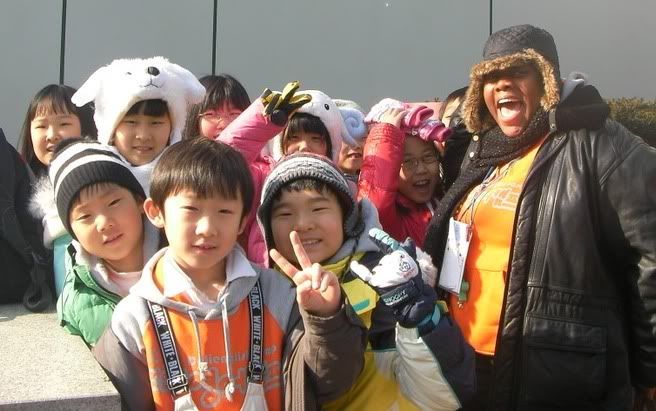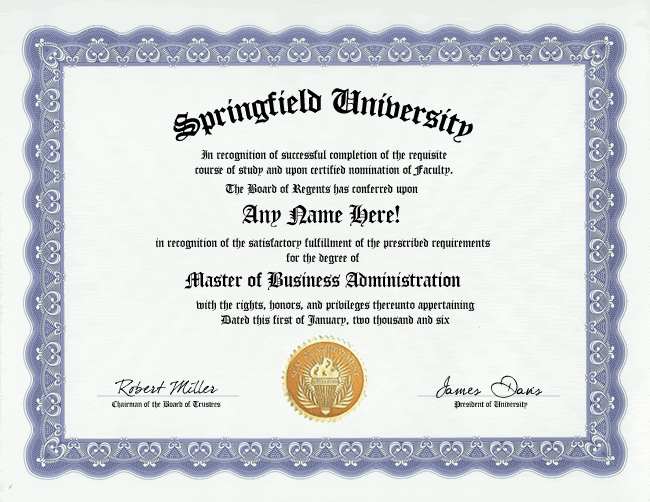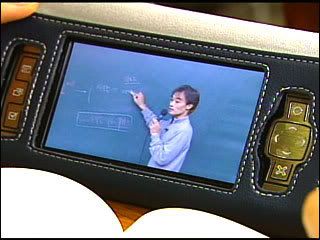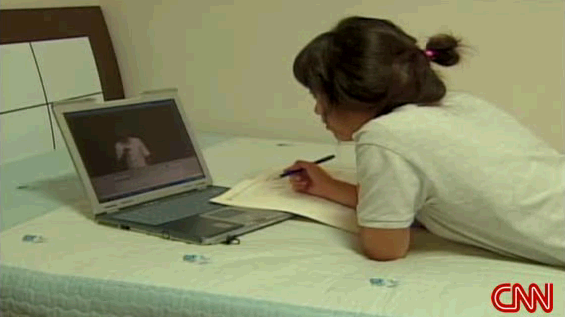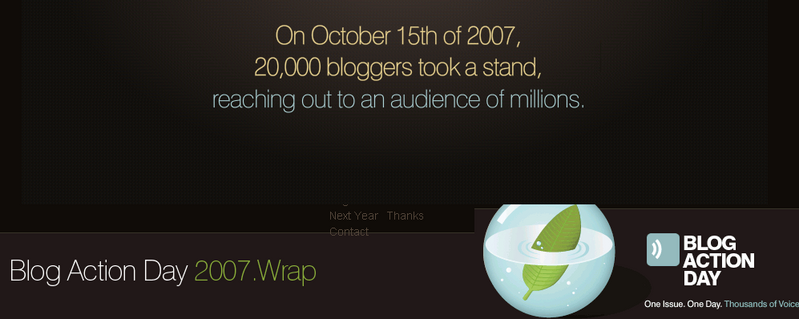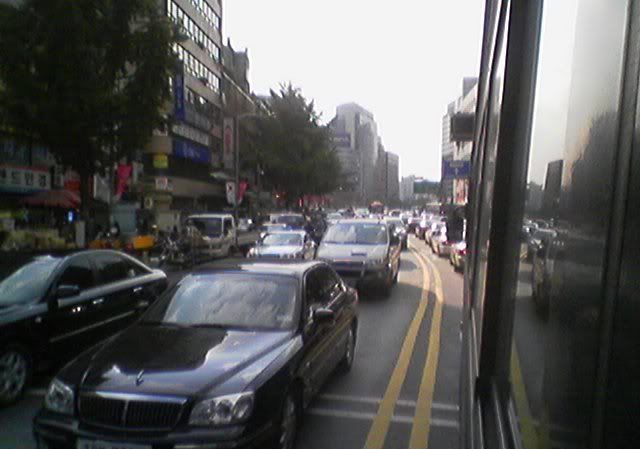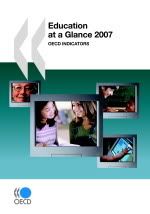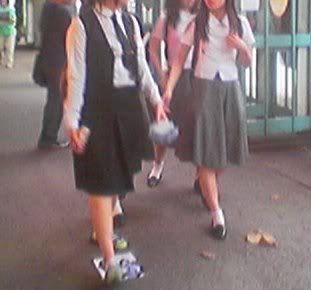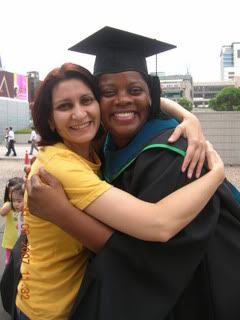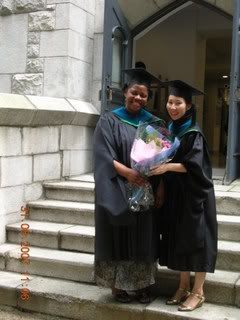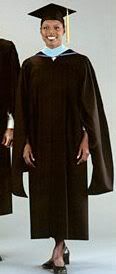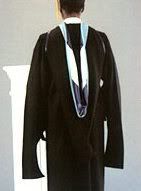
Update 2 (September 9 @ 2:15pm)
I didn't watch it, but a lot of people who did say that the KBS "exposé" on foreign teachers in Korea and their bad, bad, bad behavior was more balanced than not.
View from the fence: KBS on criminal teachers
ZenKimchi: The (Latest) KBS Anti-Foreigner Show
That's great! Really, there is no sarcasm there. It only helps to renforce the point I've expressed a few times over that, in general, Koreans appear to have a much faster learning curve on issues like prejudice because, mostly, it stems from ignorance and not mallice.
However, it still irks me they focus so much on what foreigners are doing but often turn a blind eye to what their own are doing. I mean in a country of over 40 million people where the foreign population has just now topped the 1,000,000 mark, their time would be much more effective chasing down the bad Mr. Kims out there.
This fake degree stuff would plummet with both foreigners and Koreans if Koreans simply took the time to verify credentials. People would still try to cheat, but they'd get sorted out more often than not.
---------------------------
Update 1 (September 6 @ 7:04pm)
This got me so riled up that with my friend's help we opined on academic fakery and our opinions on it last night: Podcast #31 - Academic Fakery and the New Jack Hustle
Check it out and then go on to comment on how wrong, judgmental, or stereotypically American we are!
Cheers! ;-)
---------------------------
Okay, I got a phone call today that was really bothersome.
My academic advisor at Ewha GSIS, who is a foreigner here, is listed on the Ewha GSIS website as having a PhD from both Trinity College in Dublin and Georgetown in the US.
Now this is through no fault of his own, but because the people entering the information at Ewha couldn't either 1) be bothered to get the information right or 2) intentionally chose to write something inaccurate he's got an overzealous reporter on his trail.
A reporter at the Korea Times called me today to ask me questions about this. He asked me if my advisor misrepresented himself. I told him that, to my knowledge, he had not. I told him that, as an Oxford, Kent, and Trinity grad, my professor would have no reason whatsoever to inflate his credentials to get a job here.
I also told him that I have a J.D., and that I've had a couple of situations where the schools I've worked for have taken it upon themselves to change my information. Instead of listing me as a J.D., I've been listed as an M.A. or even a PhD. I also have a friend, Mike aka the Metropolitician, that this has happened to also.
I told the reporter that's probably what happened with my advisor.
He then asked me who made the error. My reply was how was I to know who made the error. However, what he should do is to contact my professor and the schools to check. Since this type of mistake/exaggeration is common here, it was essentially harmless because he did attend Georgetown while he was pursuing his PhD at Trinity. That's easily confirmed.
Again, I told him he should contact my professor directly. The reporter's explaination was he feared that my advisor would "lie". That ruffled my Western feathers a bit because it shows me this fake degree stuff is turning into a witch hunt rather than a true quest for the truth.
I know leading questions when I hear them. Of course, I contacted my prof to tip him off and he replied letting me know that he'd spoken to this reporter twice today.
Since I got the call, got questions seemed to be asked to clearly steer me into a specific answer and I know the Korean media can be less than professional, I've decided to head them off at the pass. This is strictly preemptive because I've seen this way too many times. Nothing has been written or published yet, and it unless he finds evidence of clear lying, it should stay that way. Basically, he needs to find another target.
I'm all for investigating and I'm all for disclosure when it's proven that someone's intentionally misrepresented themselves. However, just as something recently took off about Daniel Henney (linked below). It's seem the same madness is being directed at my professor.
I hope that this reporter doesn't decide to publish anything suggesting my advisor lied. However, dear aggressive reporter, if you do, be warned you're definitely stretching here.
Honestly, why not write about the cultural and structural reasons why this happens so often? That would be a better story and might actually turn the tide in Korea to changing the situation rather than denial where they get to say "well, see??? Those nasty foreigers do it too." Well, some might but it doesn't go as deep as it does here and we know that too.
My feeling is that because it's hit the international press (New York Times and Associated Press) that whole "shame" thing has kicked in and now Korean reporters are scrambling to show it's not just us, you all do it too.
Reporting and fact-finding is cool. However, witch hunts aren't.
Now I've got to run off to record a podcast. I'll update this with more links later.
As stated, they even tried to string up Daniel Henney. The fact is liberties are often taken regarding academic qualifications here in Korea but the issue is if the person lied or not. If they didn't, there is no story and no amount of leading questions will generate one.
Go after the real liars, dear reporters.
Oh, speaking of Korean reporters who want to distract people. Yet another TV special about all of those depraved English teachers out there. It's so lame that you can just click over for commentary: Sex, Drugs and English Teachers. The Marmot actually saw the show. I didn't bother.
-----------
Some articles on the education issue here in Korea (sometimes not direct research but Korea is mentioned):
Asia Times: Life and Death Exams in South Korea
Asia Pacific Education Review (2002, Vol. 3, No. 1, 125-135): The Relationship Between Students’ Perceptions of Classroom Environment and Their Academic Achievement in Korea or here
Shanghai Star: GRE computor test to be ended in China, S. Korea
The Educational Forum: Cheating in Middle School and High School
Read More...
Summary only...
Sphere: Related Content


